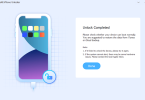Making data-driven decisions for your business starts with collecting data in various ways. There are many methods to collecting data from customers, employees, or stakeholders, but the tools we will be focusing on today will be surveys for Salesforce. When your data is collected and captured into Salesforce with a survey, data analysts can analyze it and create various reports. Managers and executives often find reports helpful and necessary to make data-driven decisions for different business operations and initiatives, such as tracking customer preferences, measuring the success rate of marketing campaigns, and assessing customer services.
As you can see from the explanation above, surveys are an immensely valuable tool in the long run, especially when it comes to making data-driven decisions. Let’s explore Salesforce surveys in greater detail.

Contents [hide]
Use a Salesforce Survey for Streamlined Data Collection
If you need to make a Salesforce survey, then try Salesforce Surveys. It’s a tool to create surveys to be sent to a target audience. Salesforce Surveys can collect the responses, too. Since it’s part of the Salesforce Customer 360 platform, you know your customer or stakeholder answers will be stored in one location with no need for data syncs or transfers between various applications.
That explanation is on a high level, though, so let’s take a look at a few features that Salesforce Surveys provides:
Create Surveys
Starting at the very beginning, Salesforce Surveys provides you with an interface to create surveys.
You can go ahead and add many question types with Salesforce Surveys, which include multiple-choice questions, open-ended questions, and even rating scales, to name a few. Using a variety of questions in your surveys can make them more engaging to your customers, which is an essential aspect of getting them to submit data.
More than just questions, though, Salesforce Surveys also provides features to customize your surveys according to your specific brand.
Distribute Surveys
Once you have completed creating your survey, it’s time to send it to your customers, employees, partners, or any other target audience. Salesforce Surveys makes this task easy, as they provide features to distribute surveys to many channels, like email or web links. You also have the option to embed the survey in a Salesforce application if you need to. Salesforce Surveys’ distribution features are pretty flexible and give you opportunities to reach your target audience easily.
Automate Workflows
When you use Salesforce Surveys with automation tools like Workflow Rules and Process Builder, you get to speed up your survey tasks drastically. For example, I have seen a marketing team automate their survey distributions based on specific criteria, like sending surveys to customers after a product has been purchased.
Salesforce Survey Tools
Salesforce is a great CRM platform, but it is not the only provider of survey tools. If you are looking for an advanced and dedicated survey tool that integrates with Salesforce, take a look at the below options that could help you collect data for making business decisions:
SurveyMonkey
You have probably heard of SurveyMonkey, as it’s a top-rated survey tool. it will be good news for you that it also integrates with Salesforce so that you can sync your survey data quickly into your CRM platform. You can then go ahead and access your data that is stored as Salesforce records.
Formstack
Next up is Formstack, which integrates well with Salesforce. It provides not only a Salesforce survey builder but a form builder, too. With Formstack, you may choose if you want to create a survey or a web form that can be embedded in Salesforce to collect data for later analysis and decision-making.
Qualtrics
Moving along, we have Qualtrics. It’s an experience management platform that will integrate into Salesforce. Qualtrics is well known and used by many organizations when they want to create advanced surveys to collect data for research.
Titan Survey
To round this list up nicely, we have Titan Survey. With this application, you can collect survey data, measure customer satisfaction levels, and conduct market research using a no-code tool. Titan Survey integrates directly with your CRM platform and can assist you with creating a whole host of web projects, not just surveys for Salesforce, to collect data.
Check out how to Make Data-Driven Decisions Wisely
This process is not a quick step and takes a lot of time and action to arrive at a reliable decision you can be confident in. When using Salesforce surveys, here is a simple guide to making data-driven business decisions:
- First, determine your goals for even wanting to send out a survey. Trying to understand what you want to learn from the survey responses is a good starting point.
- Then create your survey with your objectives in mind. The objectives you thought up will help you decide which question types to add to your Salesforce survey.
- Distribute the survey to your target audience via email and social media, or add it to your website.
- Check up on your survey responses that are collected in Salesforce.
- Analyze your survey data with Salesforce or a third-party app’s analysis and reporting tools.
- Create a report or a dashboard to display your findings to key decision-makers.
- As a decision-maker, you can use the reports and dashboards to make informed decisions on product and service improvements or marketing campaigns.
More from us: The Importance of Schema Markup: Enhancing Your Website’s SEO with Structured Data
Making Data-Driven Decisions
To conclude, making business decisions based on data is a lengthy process, but it does have several benefits that are not limited to a single industry or market.
For example, when you decide to make data-driven business decisions, remember that you are using facts rather than opinions. With this approach, your decision-making will be more accurate, unbiased, and trusted since you get to reduce errors and mistakes.
Another benefit of data-driven decisions is that you can use reports and findings to allocate budgets and assign teams to projects accurately. For starters, you can reduce operational costs in the long run as you already have evidence of which teams are efficient for a specific project and can trust their project timelines. Additionally, you get to allocate budgets accurately and not waste cash on overbudgeting or underbudgeting for a project.
These benefits from making data-driven decisions are no joke and are essential for improving business processes. However, getting to the point of making a decision consists of many tasks and procedures, so make sure to speed up your operations with a Salesforce survey tool that integrates directly into your CRM system!






